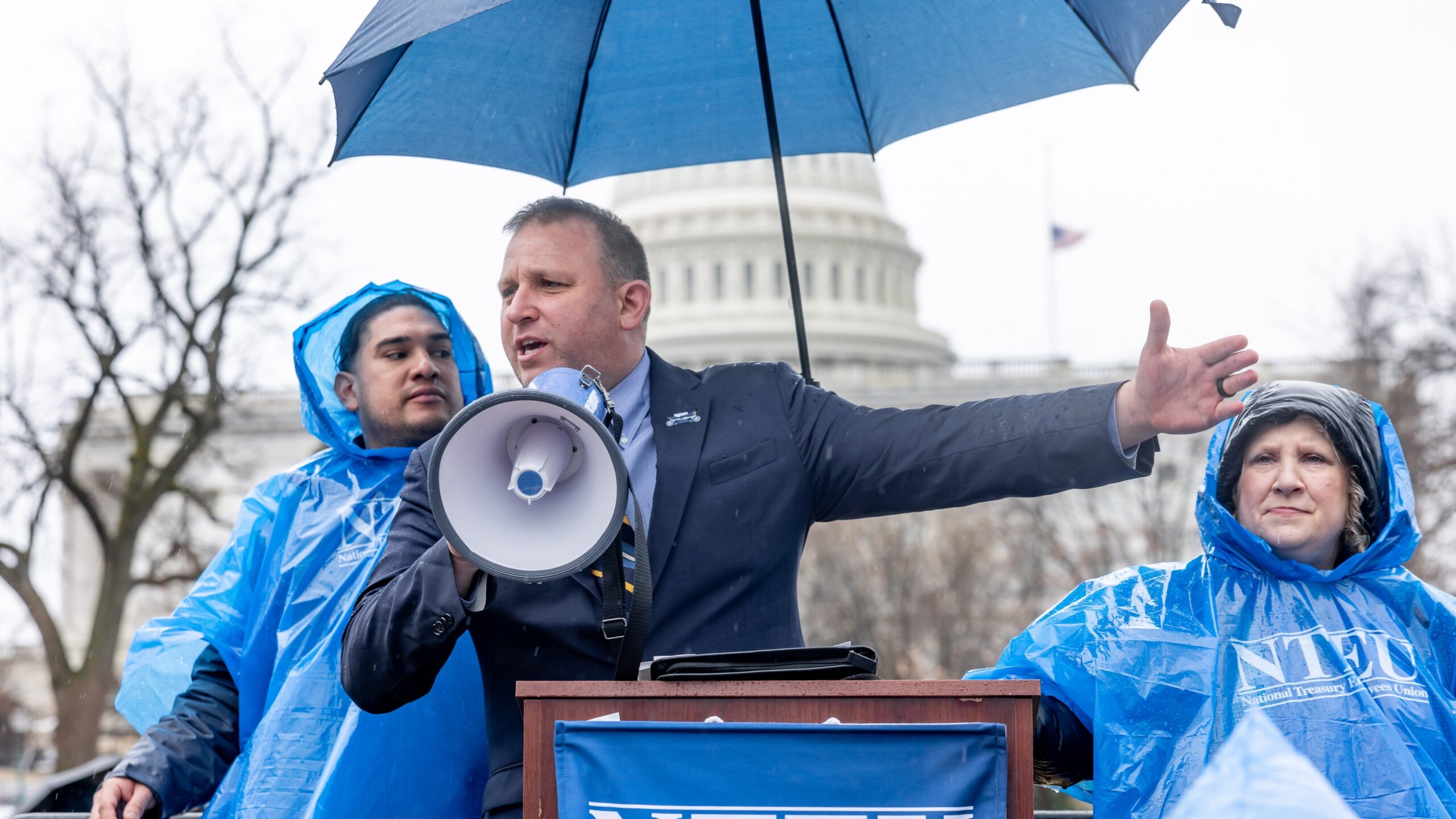
NFFE and other federal sector labor unions play an important role in in protecting employees against retaliation and wrongful discharge by filing whistleblower complaints. Federal employee whistleblowers are protected by the Whistleblower Protection Act of 1989 (WPA) and the Whistleblower Protection Enhancement Act of 2012 (WPEA).
Who is a Whistleblower?
A federal employee or contractor alerting authorities that the agency they work for, or a fellow employee, is engaged in some type of illegal or prohibited activity. Illegal and prohibited activities include:
- a violation of any law, rule, or regulation – including laws protecting union officials and protected concerted activities by employees;
- gross mismanagement, a gross waste of funds, an abuse of authority, or a substantial and specific danger to public health or safety
- censorship related to research, analysis, or technical information is or will cause any of the above (violation of law, fraud, waste, mismanagement, etc).
In 2012, Congress passed the WPEA into law to strengthen protections for federal employees who report fraud, waste, and abuse. The WPEA clarifies the scope of protected disclosures and establishes that the disclosure does not lose protection because:
- the disclosure was made to someone, including a supervisor, who participated in the wrongdoing disclosed;
- the wrongdoing being reported has previously been disclosed;
- of the employee’s motive for reporting the wrongdoing;
- the disclosure was made while the employee was off duty;
- the disclosure was made during the employee’s normal course of duty, if the employee can show that the personnel action was taken in reprisal for the disclosure; or
- the amount of time which has passed since the occurrence of the events described in the disclosure.
The WPEA protects disclosures that an employee reasonably believes are evidence of a gross government waste or gross mismanagement, an abuse of authority, a substantial and specific danger to public health or safety, or any violation of a law, rule, or regulation. Meaning, if the whistleblower turns out to be wrong about the alleged wrongdoing by their supervisors or the agency, the whistleblower will not lose protection under the law if it was reasonable to believe that they were reporting wrongdoing.
Whistleblowers are protected from retaliation for reporting what they reasonably believe is wrongdoing, as described above. This means that supervisors and managers may not take (or fail to take, or threaten to take or fail to take); any personnel action against a federal employee because of the employee protected whistleblowing. Whistleblowers are also protected from retaliation for:
- exercising any grievance rights provided by law or the contract, complaints under any law, rule, or regulation, or appeals related to either;
- testifying as a witness in any grievance arbitration hearing, before any lawful investigations panel, or in support of any such proceeding;
- cooperating or disclosing information to the Inspector General or the Special Counsel; or
- refusing to obey an order that would require the individual to violate a law, rule, or regulation.
How the Union Protects Whistleblowers
If a NFFE-IAM member believes that wrongdoing is happening on the job, and comes to the union office for assistance in “blowing the whistle” here is what you can do:
- Check your CBA for additional processes and protections which may apply to whistleblowers;
- Consider consulting the Whistleblower Ombudsman at the CPSC. The CPSC Whistleblower Ombudsman can be contacted via email: DSimpson@cpsc.gov;
- Review the FAQ provided by the Office of Special Counsel: https://osc.gov/Services/Pages/DU-FAQ.aspx;
- File a claim with the Inspector General at the Office of Special Counsel. They can also advise you of the rights and responsibilities of whistleblowers: https://osc.gov/Services/Pages/DU-FileClaim.aspx;
- Employees at the VA (among other agencies) have their own whistleblower protection laws and officials, so check to see if your agency has its own special processes and evaluate if using the internal agency process is necessary or more advantageous than reporting to the OSC. VA employees can find more whistleblower information here: https://www.va.gov/oig/hotline/whistleblower-protection.asp
- Some special rules apply to employees of the Department of Defense in non-appropriated fund instrumentality (NAFI) positions. Civilian employees who are paid from non-appropriated funds of the Army and Air Force Exchange Service, Navy Exchange Service Command, Marine Corps Exchanges, or any other instrumentality under the jurisdiction of the Armed Forces, have whistleblower protections pursuant to Directive 1401.03 (2014) and may make whistleblowing reports to the DoD Inspector General: https://www.dodig.mil/Components/Administrative-Investigations/DoD-Hotline/
What Happens if a Whistleblower is Retaliated Against?
NFFE-IAM members can receive help from their local officials if they believe that they are being retaliated against for raising protected concerns. Whistleblowers are protected from retaliation so long as whistleblowing was "a contributing factor" in the personnel action taken against them. Meaning, retaliation need not be the sole or even the major motivation for the action against them (such as proposed removal, suspension, involuntary transfer, and low performance evaluation). Whistleblower protection can be sought in any case where the agency is suspected of retaliating against the member, even if the member is accused of other acts of wrongdoing.
There are three options available to most federal employee whistleblowers if they are facing unlawful retaliation:
- File a grievance using your CBA’s negotiated grievance process;
- Use their whistleblower status as an affirmative defense in an MSPB proceeding, when the prohibited personnel action is of the type appealable to the MSPB. For more information see: https://www.mspb.gov/appeals/appeals.htm
- Some employees may have an individual right of action to hire their own attorney and seek redress through a process involving the Office of Special Counsel.
It is important to note that a whistleblower can seek redress through only one of these routes. Once one route is selected, the employee is prohibited from seeking relief through either of the other two options. To preserve legal grievance rights, NFFE-IAM members should seek counsel from their local union office before choosing a route forward.


